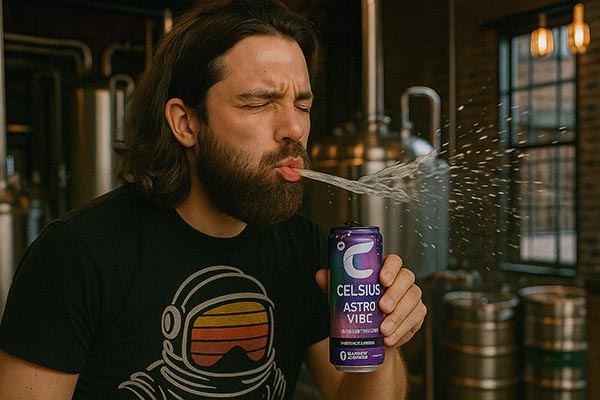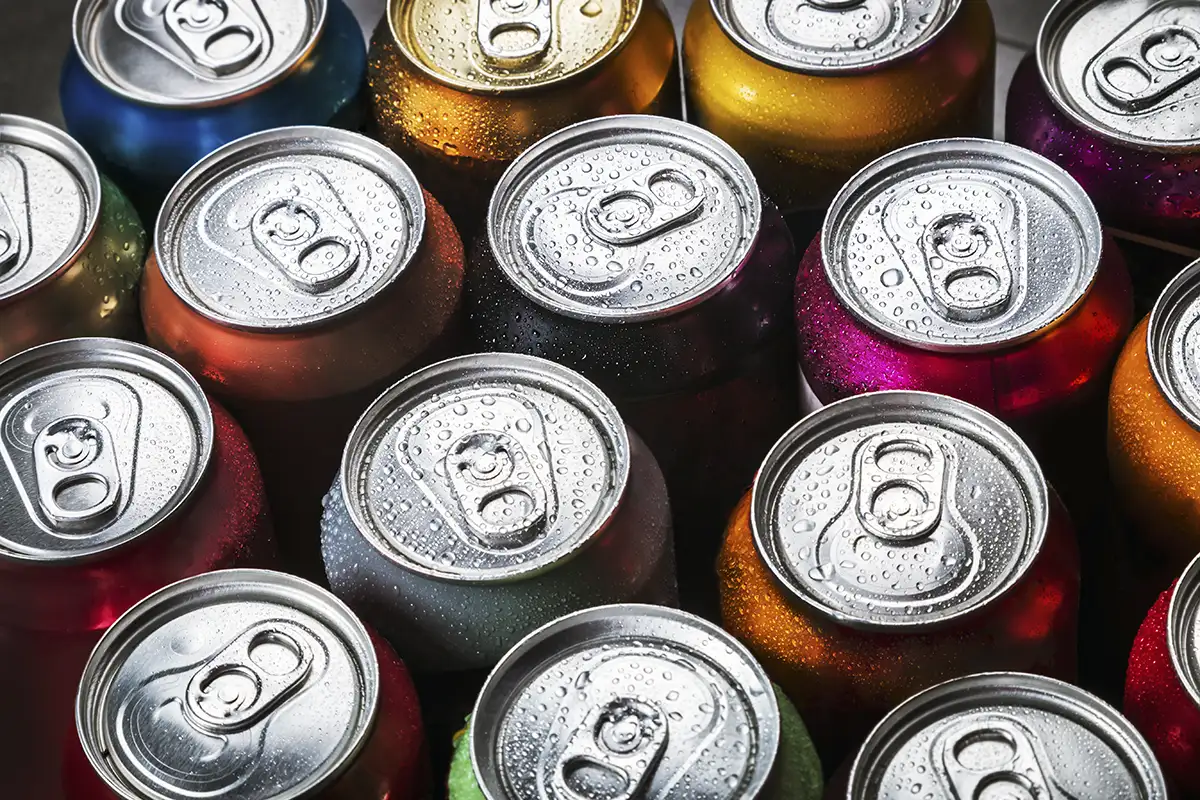
In late July 2025, the U.S. Food and Drug Administration (FDA) issued a surprising recall involving Celsius Astro Vibe Energy Drink, Sparkling Blue Razz Edition. Due to a packaging error involving a shared supplier, some cans labeled as this non-alcoholic energy drink were actually filled with High Noon vodka seltzer, exposing unsuspecting consumers to unintentional alcohol ingestion. While no injuries have been reported, the incident raises important concerns about labeling integrity and product safety.
In this article, we’ll break down what exactly happened in the High Noon–Celsius recall, how mislabeled alcohol made its way into energy drink cans, and what it means for the beverage industry. More importantly, we’ll explore why craft breweries need to pay attention. From quality assurance lapses to packaging mix-ups, this incident underscores how vital traceability, labeling accuracy, and supplier oversight are—no matter the size of your operation. Whether you’re producing small-batch lagers or scaling up for regional distribution, the lessons here apply to you.
Affordable, Industry-Leading Brewery Software
The High Noon Recall: What Happened?
A packaging supplier shared by both Celsius and High Noon mistakenly shipped empty Celsius Astro Vibe cans to High Noon. These were filled with vodka seltzer and packed into High Noon Beach Variety 12‑packs, while the individual cans retained the Celsius branding. The FDA recalled these misbranded cans once the issue was discovered.
What Is the Scope of the High Noon Recall?
- Dates shipped: July 21–23, 2025
- States affected: Florida, Michigan, New York, Ohio, Oklahoma, South Carolina, Virginia, and Wisconsin
- Lots involved: Two production lots—cans carrying lot codes from “L CCB 02JL25 2:55” to “3:11” or similar ranges—contained mislabeled product
Industry Impact and Lessons Learned
This incident serves as a cautionary tale in beverage manufacturing and distribution:
- Shared packaging suppliers must implement stricter quality controls to prevent mix-ups across brands.
- Transparent traceability in labeling, lot tracking, and supplier oversight is critical.
- Regulatory response from FDA underscores the importance of rapid action when alcohol and labeling discrepancies intersect. Though voluntary, the recall reinforces accountability in manufacturing systems.
Why Craft Brewers Must Prioritize QA and Packaging Protocols

While this recall involved national brands and large-scale co-packing operations, craft brewers should take note. Incidents like this highlight how even a small lapse in packaging, labeling, or supply chain oversight can snowball into consumer safety issues and brand damage.
Here’s why quality assurance (QA) and packaging checks are essential for craft breweries:
- Brand Trust Is Everything: Craft beer drinkers are fiercely loyal, but that trust hinges on consistent product quality and transparency. A single mix-up can erode years of goodwill.
- Label Accuracy Is a Legal Requirement: Mislabeling alcoholic content—or allergens, ingredients, or nutritional facts—can lead to regulatory action, fines, and recalls. For breweries distributing across state lines, the risks multiply.
- More SKUs, More Risk: With limited releases, seasonal rotations, and collaborations, small breweries juggle an ever-growing number of labels, cans, and packaging partners. Without strict checks, mistakes can happen fast.
- Shared Facilities Require Extra Vigilance: Like in the Celsius-High Noon incident, contract brewing or using mobile canning lines introduces risk. Breweries must ensure partners are following SOPs and not mixing up products.
- Proactive QA Saves Money in the Long Run: Investing in QA protocols—from can seam checks and CO2 testing to final visual inspections—may seem time-consuming, but it’s far cheaper than a product recall or a damaged reputation.
For breweries aiming to grow or distribute widely, professionalizing your QA process isn’t optional—it’s a competitive advantage.
How Ollie Helps Helps Safeguard QA and Traceability

Incidents like the Celsius Astro Vibe recall are a wake-up call for breweries of all sizes. Fortunately, modern brewery management tools like Ollie offer built-in solutions to prevent and respond to issues related to mislabeling, lot traceability, and production errors.
Here’s how Ollie helps craft brewers stay ahead:
Lot Code Tracking Made Easy
Ollie allows breweries to assign and track lot codes across every batch—from raw ingredients to packaged goods. This means if something goes wrong (like mislabeled cans or contamination), you can quickly isolate and identify which products are affected.
End-to-End Production Visibility
Every stage of your brewing process—from grain to glass—is logged in Ollie. You’ll know which tanks were used, what ingredients were added, when packaging occurred, and what inventory went where.
Streamlined Compliance
Whether you’re selling direct-to-consumer or distributing across state lines, Ollie helps ensure your records are audit-ready. Accurate batch logs, digital packaging records, and product tracking give you peace of mind—and a paper trail when you need it.
Integrated QA Checkpoints
You can build QA tasks and checkpoints directly into your brewing and packaging workflows. Assign responsibilities to team members, set reminders, and record results, all in one place.
For growing breweries, Ollie isn’t just about efficiency—it’s about protecting your brand, your customers, and your bottom line. From lot tracking to compliance and QA, it’s a tool built to keep you brewing better, smarter, and safer.
Wrap Up
The FDA recall of Celsius Astro Vibe cans is unusual—and serious—because it involves a non-alcoholic beverage mislabeled and filled with alcohol by mistake. Even though there have been no reported illnesses, the risk of unintentional alcohol ingestion makes it essential for consumers to check their products carefully. This incident underscores the need for rigorous oversight in shared manufacturing environments and serves as a reminder that even small packaging errors can have significant safety implications.
Book a demo of Ollie today if your brewery needs a QA overhaul.


